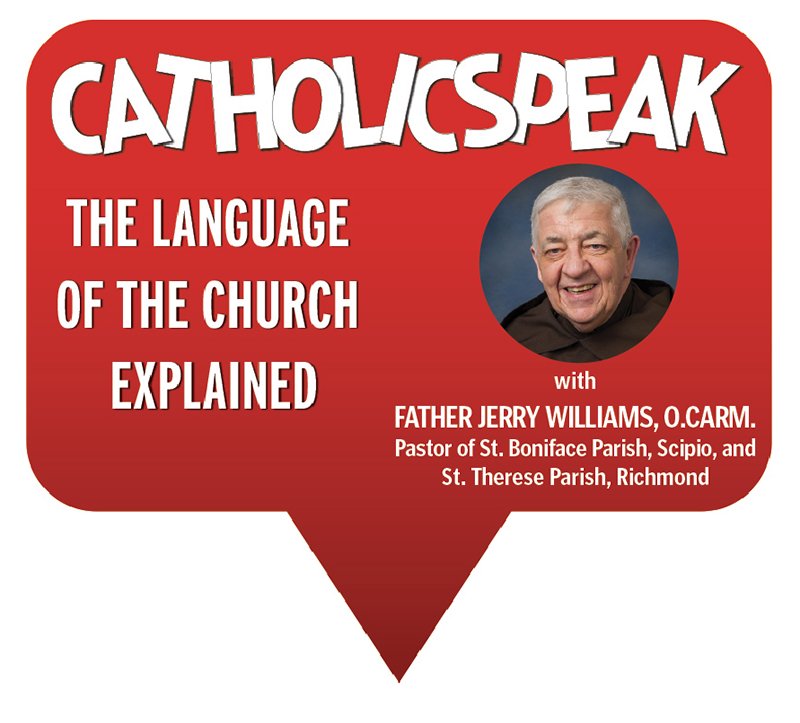
by Moira Cullings
moira.cullings@theleaven.org
Little is written in the New Testament about Mary, the mother of Jesus, yet Catholics around the world have had a special relationship with her since the time she walked the earth.
What do we really know about Mary, and why was she chosen to answer God’s call in such a unique way?
The Leaven spoke with Father Jerry Williams, O. Carm., pastor of St. Boniface Parish in Scipio and St. Therese Parish in Richmond, about Mary’s life and impact on Catholicism.
Q: Before she became the mother of God, who was Mary?
A: We don’t know much factually about Mary, other than what we can gather from the few times she’s mentioned in the Gospel, said Father Jerry.
“She would’ve been a young woman who would’ve been immersed in Jewish faith and culture,” he explained. “That would’ve been what prepared her to be open to hearing God’s word.”
Father Jerry said it’s safe to presume that Mary was raised in a faithful Jewish family with exposure to Hebrew Scripture but no formal study.
“[Her knowledge] would’ve been more through hearing it discussed and then seeing it lived out in the practical day-to-day experience of being part of a Jewish family,” he said.
Q: Why did God choose Mary, in particular, to be the mother of Jesus?
A: Although God could’ve chosen anyone to be the mother of Jesus, he prepared Mary, who was born without sin.
“We’re all uniquely called [by God], but Mary was uniquely called in an extraordinary way,” said Father Jerry. “She, because of her faith, was prepared to respond in the affirmative.”
We have that same opportunity, he explained, “not to do the same thing, but to be responsive and attentive to God’s will and God’s word in the same way Mary would have.”
Q: Some passages in the New Testament refer to Jesus’ brothers and sisters. Did Mary have other children besides Jesus?
A: “In Middle Eastern culture, the idea of a family unit — meaning mother, father and children — was a much broader understanding of relationship [than ours],” said Father Jerry.
“So there were patriarchs and matriarchs and more of an extended family idea,” he added.
Those referred to as Jesus’ brothers and sisters might have been cousins or other close relatives.
Q: How did Mary become such a central figure in Catholicism when there is so little written about her in the New Testament?
A: Father Jerry explained that Mary has drawn people closer to God because she is relatable and a strong example for our own lives.
“I don’t think there’s a people on earth who don’t have some connection with Mary that reflects some of their own world understanding, their own faith understanding, of how things are continuing to unfold in God’s plan for us,” he said. “She works for all people at all times.”
“She’s not frozen in time 2,000 years ago,” he added, “but is rather an active reflection to us of being faithful to God, being open to God’s word [and] being God’s disciple even today.”
Q: How do other Christian denominations think about Mary?
A: Not only do Christians acknowledge Mary “as a unique figure in their understanding of the divine story as it unfolds,” but people of other faiths do, too, said Father Jerry.
“Mary is certainly recognized, but perhaps not with all the titles or all of the intensity of the veneration that might be more Catholic in nature,” he said.
Father Jerry explained that even with many of the reform movements, Mary wasn’t completely lost.
“There are a lot of people from reformed Christian churches who still hold Mary in a very preeminent place in the story of salvation history,” he said.
Q: Do Catholics worship Mary? If not, what exactly is our relationship to her?
A: “No, we do not worship Mary,” Father Jerry clarified.
“As Catholics, that worship belongs to God alone in the Trinitarian understanding of God as Father, Son and Holy Spirit.”
We honor and venerate Mary, and pray through her intercession.
“Mary directs us, she always has, toward God,” said Father Jerry. “Our vision of Mary has to take us beyond who she was to who brought her into existence.”
Although she is not the central figure of our faith, her life “can give us openness [and] it can give us direction that we need so that we are living up to our call as children of God, just like Mary lived up to her call as a child of God,” he said.






